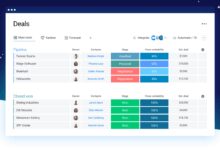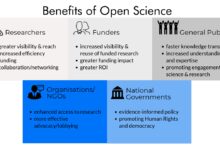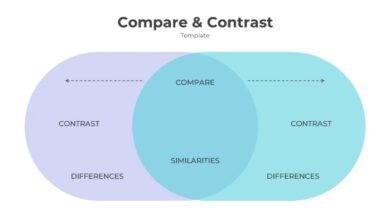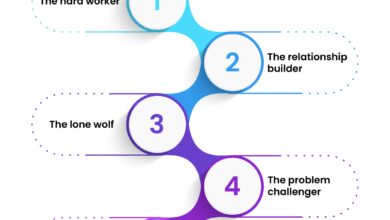CRM Software for Small Business: 7 Powerful Tools to Skyrocket Growth
Running a small business is no small feat. With limited resources and endless tasks, staying on top of customer relationships can feel overwhelming. That’s where CRM software for small business comes in—your digital ally to organize, automate, and elevate every customer interaction.
Why CRM Software for Small Business Is a Game-Changer

Customer Relationship Management (CRM) software has evolved from a luxury for enterprise giants to an essential tool for small businesses. It’s not just about storing contact details anymore. Modern CRM systems streamline sales, marketing, customer service, and analytics—all in one place. For small businesses, this means better customer retention, higher conversion rates, and smarter decision-making.
Improved Customer Relationships
At its core, a CRM system helps you understand your customers better. By tracking every interaction—emails, calls, purchases, support tickets—you gain a 360-degree view of each customer. This visibility allows for personalized communication, timely follow-ups, and proactive service.
For example, if a customer hasn’t made a purchase in 60 days, your CRM can trigger an automated email with a special offer. This kind of personal touch builds loyalty and keeps your brand top-of-mind.
- Tracks customer behavior and preferences
- Enables personalized marketing campaigns
- Reduces response time to customer inquiries
Increased Sales Efficiency
Sales teams in small businesses often juggle multiple roles. A CRM system eliminates the chaos by organizing leads, tracking deal stages, and automating routine tasks like data entry and follow-up reminders.
According to a study by Nucleus Research, businesses gain an average of $8.71 for every dollar spent on CRM. That’s because CRM software for small business helps sales reps close deals faster and with less effort.
“CRM isn’t just a tool—it’s a strategy for putting the customer at the center of everything you do.” — Paul Greenberg, CRM Industry Analyst
Top 7 CRM Software for Small Business in 2024
Choosing the right CRM can be overwhelming. To simplify your search, we’ve analyzed the top 7 CRM platforms tailored for small businesses. Each offers unique features, pricing models, and scalability to match your growth.
1. HubSpot CRM
HubSpot CRM is widely regarded as the best free CRM for small businesses. It offers a robust set of tools including contact management, email tracking, deal pipelines, and live chat. What sets HubSpot apart is its seamless integration with marketing, sales, and service hubs.
The free version is incredibly powerful, making it ideal for startups and solopreneurs. Paid tiers unlock advanced features like automation, custom reporting, and team collaboration tools.
CRM Software for Small Business – CRM Software for Small Business menjadi aspek penting yang dibahas di sini.
- Free forever plan with no user limits
- Intuitive drag-and-drop interface
- Deep integration with email and social media
Learn more at HubSpot CRM.
2. Zoho CRM
Zoho CRM is a feature-rich platform designed for growing small businesses. It offers AI-powered sales assistant (Zia), workflow automation, and omnichannel communication (email, phone, chat, social media).
One of Zoho’s biggest advantages is its affordability. Plans start at just $14/user/month, and the software scales seamlessly as your team grows. It also integrates with over 40 Zoho applications and 500+ third-party tools.
- AI-driven insights and forecasting
- Customizable sales pipelines
- Mobile app with offline access
Explore Zoho CRM at Zoho CRM.
3. Salesforce Essentials
Salesforce, the global leader in CRM, offers a simplified version called Salesforce Essentials tailored for small businesses. It provides core CRM functionalities with a user-friendly interface and built-in guidance.
While more expensive than other options, Salesforce Essentials delivers enterprise-grade reliability, security, and scalability. It’s perfect for small businesses planning rapid growth or those already using other Salesforce products.
- Guided setup and onboarding
- Real-time sales forecasting
- Integration with Gmail and Outlook
Visit Salesforce Essentials for details.
4. Freshsales (by Freshworks)
Freshsales stands out with its AI-powered lead scoring and built-in phone system. It’s designed to help small sales teams prioritize high-value leads and close deals faster.
The platform offers visual deal pipelines, email tracking, and activity reminders. Its clean interface makes it easy for non-technical users to adopt quickly. Pricing starts at $15/user/month, with a free tier for up to 3 users.
CRM Software for Small Business – CRM Software for Small Business menjadi aspek penting yang dibahas di sini.
- AI-based lead prioritization
- Click-to-call and voicemail integration
- Automated data capture from emails
Check out Freshsales for a free trial.
5. Insightly
Insightly is ideal for small businesses that need project management alongside CRM. It combines contact management, opportunity tracking, and project planning in one platform.
If your business involves managing client projects—like marketing agencies, consultants, or contractors—Insightly helps you track deadlines, tasks, and communications in one place.
- Project and task management integration
- Workflow automation for repetitive tasks
- Customer lifecycle tracking from lead to renewal
Learn more at Insightly.
6. Pipedrive
Pipedrive is built for sales-focused small businesses. Its visual sales pipeline makes it easy to see where each deal stands and what actions are needed next.
The platform emphasizes simplicity and usability, making it a favorite among sales teams with little technical experience. It also offers robust automation, email integration, and reporting tools.
- Drag-and-drop sales pipeline
- Customizable workflows and templates
- Mobile app with full functionality
Explore Pipedrive for a 14-day free trial.
7. Agile CRM
Agile CRM offers an all-in-one solution combining CRM, marketing automation, and helpdesk functionality. It’s a great choice for small businesses that want maximum features at a low cost.
The free plan supports up to 10 users and includes basic CRM and marketing tools. Paid plans add advanced features like web tracking, telephony, and analytics.
CRM Software for Small Business – CRM Software for Small Business menjadi aspek penting yang dibahas di sini.
- Integrated marketing automation
- Website visitor tracking
- Helpdesk ticketing system
Visit Agile CRM to get started.
Key Features to Look for in CRM Software for Small Business
Not all CRM systems are created equal. When evaluating options, focus on features that align with your business goals and operational needs. Here are the most critical functionalities to consider.
Contact and Lead Management
The foundation of any CRM is its ability to store and organize customer data. Look for a system that automatically captures leads from multiple sources—website forms, email, social media, and calls.
A good CRM should allow you to segment contacts by criteria like location, industry, or purchase history. This enables targeted marketing and personalized communication.
- Automatic lead capture from web forms
- Custom fields for detailed customer profiles
- Duplicate contact merging
Sales Pipeline and Deal Tracking
A visual sales pipeline helps you track where each prospect is in the buying journey. Whether it’s “Initial Contact,” “Proposal Sent,” or “Closed Won,” clear stages keep your team aligned.
Advanced CRMs allow you to set deal values, probabilities, and expected close dates, enabling accurate revenue forecasting.
- Drag-and-drop pipeline customization
- Deal value and stage probability settings
- Forecasting reports based on pipeline data
Automation and Workflow Tools
Time is your most valuable resource. Automation reduces manual work by handling repetitive tasks like sending follow-up emails, assigning leads, or updating contact statuses.
For example, when a lead downloads a whitepaper, your CRM can automatically add them to a nurture sequence, assign a sales rep, and log the activity—all without human intervention.
“Automation in CRM can save small businesses up to 10 hours per week in administrative tasks.” — CRM Magazine, 2023
How to Choose the Right CRM Software for Small Business
Selecting the right CRM isn’t just about features—it’s about fit. A tool that works for a tech startup might not suit a local retail store. Follow these steps to make an informed decision.
CRM Software for Small Business – CRM Software for Small Business menjadi aspek penting yang dibahas di sini.
Assess Your Business Needs
Start by identifying your pain points. Are you losing leads? Struggling with follow-ups? Unable to track sales performance? List your top 3-5 challenges.
Then, map those challenges to CRM features. For example, if follow-ups are inconsistent, look for a CRM with strong automation and reminder systems.
- Identify key operational bottlenecks
- Define must-have vs. nice-to-have features
- Involve your team in the evaluation process
Consider Scalability and Integration
Choose a CRM that can grow with you. Will it support more users, additional features, or international expansion in the future?
Also, ensure it integrates with tools you already use—email platforms (Gmail, Outlook), accounting software (QuickBooks), or e-commerce systems (Shopify).
- Check API availability for custom integrations
- Verify compatibility with existing tech stack
- Look for marketplace integrations (e.g., Zapier)
Test with a Free Trial
Most CRM providers offer free trials or freemium plans. Use this time to test real-world scenarios: import your contacts, create a sales pipeline, send automated emails.
Involve your team in the trial. Their feedback on usability and workflow fit is invaluable.
- Import real data for accurate testing
- Simulate daily tasks and workflows
- Evaluate mobile app performance
Common Mistakes to Avoid When Implementing CRM Software for Small Business
Even the best CRM can fail if implemented poorly. Avoid these common pitfalls to ensure a smooth rollout and long-term success.
Poor Data Migration and Cleanup
Migrating messy or outdated data into a new CRM can create more problems than it solves. Before importing, clean your data: remove duplicates, update contact info, and standardize formats.
Many CRMs offer data import tools and templates. Use them to ensure a smooth transition.
CRM Software for Small Business – CRM Software for Small Business menjadi aspek penting yang dibahas di sini.
- Remove duplicate and inactive contacts
- Standardize naming conventions and fields
- Validate email and phone numbers
Lack of Team Training
A CRM is only as good as the people using it. Without proper training, team members may resist adoption or use the system incorrectly.
Invest time in onboarding sessions, create quick-reference guides, and assign a CRM champion to answer questions.
- Conduct hands-on training workshops
- Provide video tutorials and FAQs
- Encourage feedback and continuous learning
Over-Customization Too Early
While customization is powerful, overdoing it early can lead to complexity and confusion. Start with default settings and basic workflows. As your team gets comfortable, gradually introduce advanced features.
Resist the urge to build complex automations on day one. Focus on consistency and adoption first.
“The most successful CRM implementations start simple and evolve with the business.” — Gartner CRM Research
How CRM Software for Small Business Boosts Marketing and Customer Service
While sales is the most common use case, CRM software also enhances marketing and customer service—two pillars of long-term success.
Marketing Automation and Campaign Management
Modern CRMs allow you to create targeted email campaigns, track engagement, and measure ROI—all from one dashboard. You can segment audiences, A/B test subject lines, and automate follow-ups based on user behavior.
For example, if a customer abandons their cart, your CRM can trigger a personalized email with a discount code—increasing the chance of conversion.
- Automated email sequences based on triggers
- Behavior-based audience segmentation
- Open and click-through rate tracking
Customer Service and Support Integration
A CRM can serve as a central hub for customer support. Log tickets, track response times, and maintain a knowledge base—all linked to customer profiles.
When a customer calls, support agents can instantly see their purchase history, past issues, and communication preferences—leading to faster, more personalized service.
CRM Software for Small Business – CRM Software for Small Business menjadi aspek penting yang dibahas di sini.
- Unified inbox for emails, calls, and chats
- Service ticket tracking and escalation
- Customer satisfaction (CSAT) surveys
The Future of CRM Software for Small Business
CRM technology is evolving rapidly, driven by AI, automation, and data analytics. Small businesses that embrace these trends will gain a competitive edge.
AI-Powered Insights and Predictions
Artificial intelligence is transforming CRM from a reactive tool to a predictive one. AI can analyze customer behavior to predict churn, recommend next-best actions, and even draft personalized emails.
For example, Zoho’s Zia AI can suggest the best time to contact a lead or flag deals at risk of stalling.
- Predictive lead scoring
- Automated sentiment analysis
- Smart email drafting and response suggestions
Mobile-First and Remote Access
With more teams working remotely, mobile CRM access is no longer optional. Leading platforms offer robust mobile apps with offline capabilities, voice commands, and real-time sync.
Sales reps can update deals, log calls, and access customer data from anywhere—ensuring continuity and responsiveness.
- Offline data access and syncing
- Mobile-optimized interfaces
- GPS-based visit tracking
Integration with E-Commerce and Social Media
As customer interactions span multiple channels, CRMs are integrating deeper with e-commerce platforms and social media networks.
Imagine a customer messaging you on Instagram—your CRM logs the conversation, links it to their profile, and triggers a follow-up. This omnichannel approach ensures no interaction falls through the cracks.
- Social media monitoring and engagement
- Shopify, WooCommerce, and BigCommerce sync
- Unified customer journey tracking
What is CRM software for small business?
CRM software for small business is a digital tool that helps small companies manage customer interactions, track sales leads, automate marketing, and improve customer service. It centralizes customer data to enhance relationships and drive growth.
CRM Software for Small Business – CRM Software for Small Business menjadi aspek penting yang dibahas di sini.
Is there a free CRM software for small business?
Yes, several CRM platforms offer free plans, including HubSpot CRM, Agile CRM, and Freshsales. These free versions often include core features like contact management, deal tracking, and basic automation.
How much does CRM software for small business cost?
Prices vary widely. Free plans are available, while paid options typically range from $10 to $50 per user per month. Costs depend on features, number of users, and integration needs.
Can CRM software help with email marketing?
Absolutely. Most CRM systems include email marketing tools that allow you to create campaigns, segment audiences, track opens/clicks, and automate follow-ups based on user behavior.
How long does it take to implement CRM software?
Implementation can take anywhere from a few days to several weeks, depending on data complexity, team size, and customization needs. Using a phased approach and free trials can speed up adoption.
Choosing the right CRM software for small business is one of the most impactful decisions you can make. It’s not just about organizing contacts—it’s about building stronger relationships, streamlining operations, and unlocking growth. From HubSpot’s free plan to Salesforce’s enterprise-grade tools, there’s a solution for every budget and need. The key is to start with your goals, involve your team, and choose a platform that grows with you. With the right CRM, your small business can compete with the big players—without the big overhead.
CRM Software for Small Business – CRM Software for Small Business menjadi aspek penting yang dibahas di sini.
Further Reading:







